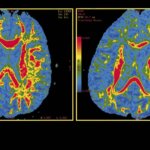During stay-at-home orders implemented as the COVID-19 pandemic worsened, a research team found that alcohol consumption increased by close to 20 percent.
Released in the American Journal of Drug and Alcohol Abuse, the study is one of the only to examine the link between pandemic-related stress and binge drinking, as of this article’s publication.
Close to 2,000 American adult participants were surveyed during Q2 of 2020. The surveys were administered to gain a thorough assessment of the stress the participants may have experienced during stay-at-home orders. The research team also looked at the drinking habits of the participants.
“This analysis aims to identify COVID-19-related stressors associated with changes in alcohol consumption and binge drinking since the outbreak of the coronavirus,” the study reads.
“Data were collected on sociodemographics, alcohol consumption, and COVID-19-related stressors (household composition, job status, essential worker, stay-at-home duration, and depression) using a web-based, self-report survey to US adults from mid-March to mid-April 2020.”
The findings showcased how as many as 34 percent of the participants surveyed had reported binge drinking during the pandemic-related stay-at-home orders.
“Specific COVID-19-related stressors are related to alcohol consumption. This highlights the ancillary and unintended effects of the COVID-19 pandemic which could have long-lasting population health consequences,” the study concludes.


